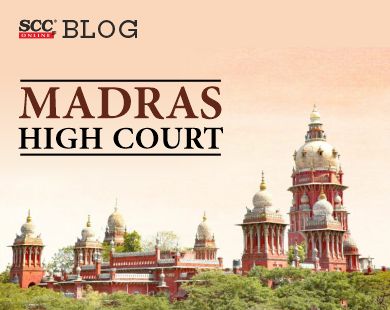Madras High Court: While deciding the writ petition, the division bench of R. Subramanian, , and K. Kumaresh Babu, JJ., held that the responsibility of the police officer handling a physically disabled person is much more and hence, should be doubly careful and exercise more restraint while handling a physically disabled person.
Background
In the case at hand, the petitioner was suffering from a degenerative congenital disorder and was entitled to protection under the Rights of Persons with Disability Act, 2016 (“the Act, 2016”). After the arrest of the petitioner by the respondent, the State Human Rights Commission, found that the arrest of the petitioner, was in violation of the guidelines laid down by the Supreme Court in Arnesh Kumar v. State of Bihar, (2014) 8 SCC 273 and granted compensation to the petitioner. The petitioner filed a writ petition before this court for enhancement of compensation.
Analysis, Law and Decision
The Court asserted that the guidelines laid down in D.K. Basu v. State of West Bengal 1997 (1) SCC 416 by Supreme Court to be followed while arresting an individual are not followed in the present case.
The Court observed that the very fact that the respondent has not read the judgment in Arnesh Kumar v. State of Bihar (supra) shows that nothing beyond issuance of circulars has been done by the Department in the direction of implementing the orders of the Supreme Court.
The Court remarked that,
“When the Supreme Court had come down heavily upon the Police force for indiscriminate arrest, the Chiefs of the State Police Force are required to ensure that the message reaches every Constable of the Police Force. An ignorant Police Force is as good as one not existing.”
The Court noted that the Act of 2016 was enacted with the object of providing required facilities to persons in need of care. It imposes an obligation on the part of the State to educate persons in charge of enforcement of law, particularly the police force by conducting training programmes to sensitize its members of the rights of persons with disabilities. Section 39 of the Act, 2016, imposes an obligation on the Government to conduct sensitization programmes and awareness campaigns to ensure that the rights of persons with disabilities provided under the Act are protected.
The Court stated that there is nothing on record to show that effort was taken at the level of at least the Superintendents of Police at the Districts and the Commissioners of Police in City Corporations to sensitize the force as required under Section 39 of the Act of 2016 and by the pronouncement of the Supreme Court particularly with reference to arrest and detention.
The Court enhanced the compensation of the petitioner from 1 lakh to 5 lakhs and said that there will be directions to ensure that the district wise sensitization programmes are conducted for police officers including constables regarding the rights of persons with disabilities.
The Court also directed that the guidelines should be issued to the police officers and Government doctors as to how they should handle such physically disabled persons.
The Court further gave directions to the Director General of Police to have a periodical inspection of the CCTV cameras in all police stations and ensure their proper functioning.
[L. Muruganantham v. State of Tamil Nadu, 2022 SCC OnLine Mad 5879, decided on 29-11-2022]
Advocates who appeared in this case:
Counsel for Petitioner:- L.Muruganantham, party in person;
Counsel for Respondent:- Advocate A. Selvendiran; Advocate P.Palaninathan; Advocate T. Balaji.







